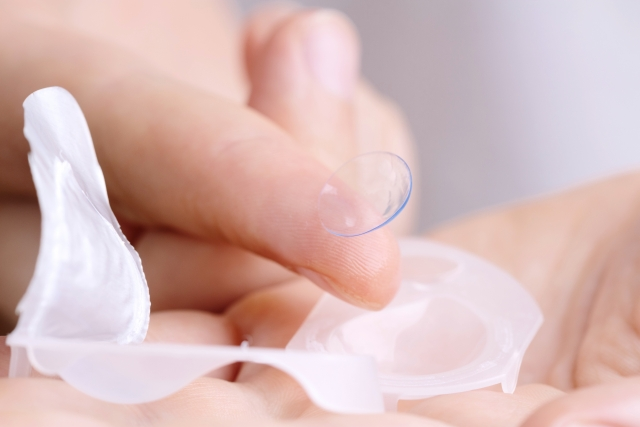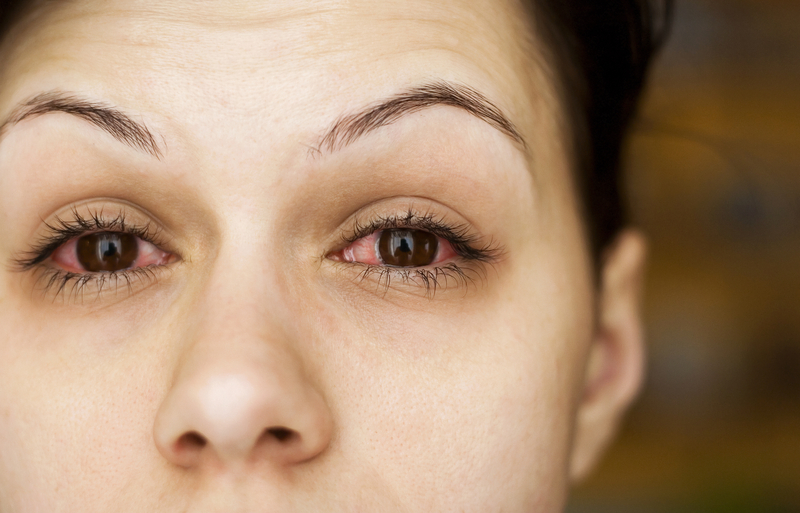Uncomfortable contact lenses? Here might be why!
How to Deal with Contact Lens Irritation

Have you ever experienced discomfort when wearing contact lenses?
Unfortunately, there are lots of people who neglect to take proper care of their contact lenses. It not only leads to eye irritation but also is a surefire way to get an eye infection, which I’m sure no one wants. Therefore, it’s important to know what causes irritation and how to deal with it.
There are lots of reasons that come into play in relation to irritation from your contacts, but also lots of different ways to negate these, all of which can be found in one handy dandy place below!
What causes contact lens irritation?

There are a myriad of reasons why your contacts just aren’t quite getting the job done as well as they could be, so here are a few troubleshooting tips!
Problems with the lens itself (wrong prescription, etc.)
Contact lens prescriptions are prescribed by an eye specialist according to the shape of each eye, such as the diameter and base curve. In addition, there are cases of allergic reactions to contact lens materials or care products, so it is necessary to see an eye specialist regularly.
If you're not sure about contact lens prescription, visit our blog here.
Improper lens cleansing and handling
All contact lenses come with specific caretaking recommendations from the manufacturer.
You should also know some standard practices such as:
- Washing your hands and fingers thoroughly with soap, and drying with a clean towel.
(Handling contact lenses without washing your hands properly exposes your eyes to bacteria and dirt, greatly increasing the risk of irritation and infection) - Using your index finger to remove the contact lenses from the lens case.
- Depending on the type of contact lens, a storage/cleaning solution and a lens case for storage may be required.
- Staying away from the tap water when cleaning
Non-compliance with lens duration
Everyone's eyecare status is different, so you should wear contact lenses as directed by your eye specialist. When you wear fortnightly or monthly contact lenses, you must require proper cleaning every day and replace the lenses properly.
(The replacement period is not the total number of days actually used, but the number of days that have passed since the blister pack was opened, and it’s necessary to replace it with a new pack.) Please, please, please, never wear contact lenses that have passed their expiration date.
How long you’ve had your lenses in for
Right now, our daily and working life tends to revolve around our smartphones, computers, and TV. All that device use, ever find that your contacts feel dry after a while?
There are two main reasons for this.
Firstly, we tend to blink less when we're staring at a screen, so don't tend to get the moisture we need.
Secondly, you may be wearing them longer than the lenses are designed for. Some lenses can be worn all day, while others are designed to last only a few hours, so check the expiration date and proper usage instructions on the packaging. In addition, each person has different eye conditions, so please consult your eye doctor to find out which lenses are best for you.
Environmental issues
Our environment plays a large role in eye care too. Heavy air conditioning for long periods of time, dust and dirt in the general area, strong winds, and flyaway pollen can all contribute to discomfort, or worse, infections and allergic reactions!
How to deal with discomfort when wearing lenses

If you are currently experiencing contact lens discomfort, here are some steps you can take, which hopefully will relieve that pain!
Blink and Use eye drops
If your eyes are dry from using devices for too long or in an air-conditioned room, consciously blink more or use eye drops to keep your eyes moist.
Remove and Clean lenses
If the lens feels loose and uncomfortable, it may be that the front and back are attached backward, or that there is dirt or dust on it. Here, we would recommend taking it out, washing it, and putting it back in. For the 1-day type, change to a new lens. If the lens is scratched, it may cause various eye problems, so chuck that one out, and replace it with a brand-new one.
Eye health
Contact lenses are considered highly controlled medical devices since they are used in direct contact with the eyeball. Therefore, an eye specialist will prescribe contact lenses that are suitable for each eye. It is also important to have regular eye exams to make sure that your prescription contact lenses are not causing any problems.
If you experience discomfort, bloodshot eyes, pain, or decreased vision due to the use of contact lenses, immediately stop using the contact lenses and immediately consult an eye specialist to receive appropriate treatment.
Let’s work together to keep those eyes healthy, and get you living your best vision life now!
